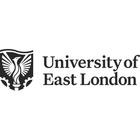The MFA level can be completed as a direct follow-on from the MA Filmmaking course at UEL or as a 'top-up' degree if you already have an MA in Film or a related area of moving image practice. The main aim of MFA Filmmaking will be the development of a substantial, high-quality film work, in either documentary, narrative film, video installation or animation, which is ready for distribution through film festivals, broadcast, VOD distribution or gallery exhibition. The development of the final project will be grounded in comprehensive research and a pre-production planning portfolio developed to a professional level. This will include idea generation and development, scripting, funding plans, budgeting, logistical preparation, networking, and distribution planning. It is also anticipated that students' projects may be integrated with industrial placement opportunities or existing professional employment, where appropriate. This will offer opportunity and flexibility for students to develop a formal qualification in line with their individual creative and career development aspirations. The two 60-credit MFA modules are by supervision only.
A major strength of this course is its diversity. Unlike other MA film courses, this course enables you to look at the different ways of making films and learn a mix of craft skills.
Our course encourages you to experiment with how ideas are formed, how concepts are developed and how images are created. You will also interrogate how meanings are constructed in film.
You'll be taught by a range of staff, all of whom are practitioners in the area they teach. The assessments are based on practice-led teaching relevant to various aspects of the film industry. Our staff are well placed to take advantage of a range of professional networks and industry contacts. Each module is designed with both a practical component and a written reflective component, with the intention that students develop an ability to comment on and justify their creative process.
Our graduates emerge well-prepared to thrive in the cultural and creative industries in areas such as film and TV production, contemporary art, new media platforms, teaching and doctoral research.
Some of our recent MA students have taken on key roles in the film industry, film journalism and film festivals. Others have progressed to practice-led PhD research or have found employment in London's vibrant production and post-production film and TV culture.
Among the success stories are Ahmer Naqvi, who has gone to Bollywood where he now works as an assistant director, and Elena Cojocaru, who has become a freelance video editor.






